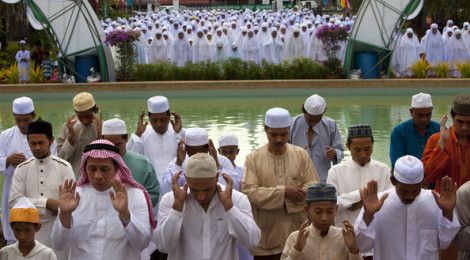
Ramadan in Thailand
Your experience of Ramadan in Thailand depends largely on where you travel. The country is about 94% Buddhist and about 6% Muslim, so many areas aren’t noticeably affected. However, if you travel in southern regions, such as Pattani, Satun, Narathiwat and Yala, it’s a different story. It is there that the Muslim population is concentrated, so Ramadan has a much bigger impact. The same is true of Muslim pockets in major cities and big towns. Keep this in mind when deciding where to go. If you’re sticking to the city, there are many Bangkok serviced apartments where you can have a comfortable stay.
Even though travelling during Ramadan might be trickier than at other times of the year, it also presents an opportunity to have an immersive and interesting cultural experience. Here’s what you need to know to make the most of it.

What’s it all about?
In 2014, Ramadan begins at the end of June and ends at the beginning of July. It is a month of the Islamic lunar calendar that is dedicated to spiritual matters. Participants strengthen and develop their connection to Allah by fasting during daylight hours. They also refrain from taking part in other earthly activities, such as smoking and having sex. As soon as sunset has come and gone, the scene changes dramatically as everyone gathers together to indulge in a delicious feast, referred to as iftar. Eating and celebrating often continues long into the evening.
Will shops and facilities be open?
As mentioned, Thailand is largely Buddhist, so, unless you’re in one of the few Muslim majority areas, you shouldn’t have too much trouble accessing the usual stores and amenities. However, if you are travelling in a Muslim region, then you can expect the days to be pretty quiet. So, unless you’re going to join in the fasting, you should do some basic preparation, by either carrying supplies with you or stocking up during the night for the next day.
Will it be okay for me to eat during the day?
Most Muslims don’t expect non-Muslims to participate in Ramadan. However, walking around eating an enormous cheeseburger while other people are fasting isn’t a great idea. Some people might see it as rather disrespectful. So, it’s a great idea to eat in private. Also, do try to meet local etiquette by dressing modestly, and keeping your skin covered up as much as possible.

Getting into the spirit
Rather than feeling uneasy and stressing out because you can’t access expected facilities, you can make your travelling experience much more fun by getting involved. That doesn’t mean that you have to pray or fast, but you can consider organising your schedule to make the most of nighttime parties. After dark, the streets fill with people, food stalls, decorations, light displays and music. If you’ve never been in a Muslim area during Ramadan before, it is definitely an exciting adventure.

Remember, too, that Ramadan isn’t just about denying oneself for one’s own spiritual development, it also has a moral aspect to it. Apart from praying more often, Muslims also focus on performing acts of generosity and kindness, by providing community services, buying gifts and taking time out to help those in need. One way you can get on board is by engaging in similar acts yourself. If you happen to know any locals, be sure to buy them presents and/or offer to help in any way you can. If you don’t, then think about seeking out a local charity and offering them some money or food or voluntary help.

